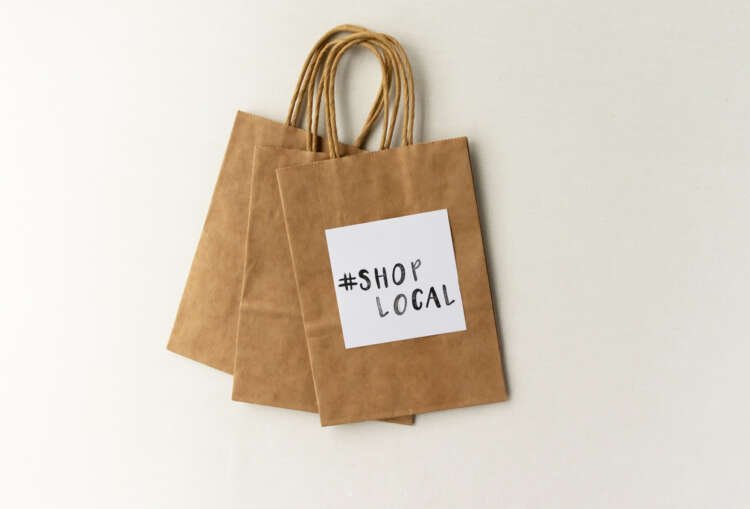Has Shop Local Sentiment Rolled Over into Business Procurement


By Steve Ellis, Managing Director at FPE Seals,
The past few years have changed the way the public looks at shopping. The Local Data Company conducted a survey that showed that between March 2020 and May 2021, there was an increase in openings of local food shops and delicatessens by 11.6%.
This trend comes as a result of the general public wanting to save high streets and local shops, rather than going to a chain or larger corporations. The question we ask is whether this sentiment is reflected in how businesses approach procurement?
In this article, we’ll examine how the trends of procurement for B2B manufacturers have changed in the past two years.
Before looking at how the industry adjusted to the pandemic, we should examine the damage it caused when it first reached our shores.
The Q1 report conducted by GDP in 2020 showed a 2% decline in national earnings compared to the previous quarter. This comes from a drop in services, construction, and sections of the manufacturing industry, while other parts of manufacturing witnessed a demand boom within cleaning products and pharmaceuticals.
Although 90% of manufacturers kept trading during the height of the pandemic, throughout 2020 saw a steady decline in sales and orders, with many businesses seeing a drastic decrease in revenue.
With the world changing so rapidly, the general public has tried to retain its local businesses amid the closing of many high street staples.
Large retailers have felt the effects of the pandemic. Shopping icons such as Debenhams, Topman, John Lewis, and Marks & Spencer, have all seen stores around the country close their doors. This all comes alongside the announcement of staggering historic revenue losses of £517 million.
Meanwhile, a study by Deloitte found that 59% of consumers in the UK have made purchases from local shops and services throughout 2020 and 2021. This determination to support local consumer businesses reflects the public’s desire for the personality and community spirit that comes with staying local.
Manufacturing has been experiencing issues that predate the start of 2020, and moving into January 2021 the Office of National Statistics found that 16% of active trading businesses were experiencing global supply chain disruptions. This statistic rises to 26% when excluding smaller firms of 0-9 employees.
As a result of this, the ONS saw a trend of businesses across all sectors using suppliers within the UK more often. Using a Business Insights and Conditions Survey, Wave 48 saw 58% of businesses using more UK suppliers for things like steel beams or piston rings.
When asked about their decisions to move to more domestic and local B2B suppliers, several businesses stated that the UK’s withdrawal from the EU was one of the key factors. With the disruptions to supply chains, we can gather that a move to local and domestic suppliers will create a more resilient supply chain within the UK after years of difficulty caused by Brexit and the pandemic.
This is a question that we might find ourselves asking as life begins to return to normal. This could come down to how B2B sales change alongside how businesses are adapting to evolving industry trends.
Trends within B2B spaces are not exempt from changing and evolving, with spending being the prime example. In April 2020, when spending was expected to be lower, McKinsey found that B2B sales were going up and down. This survey showed that spending over a two-week period would both reduce and increase for different businesses, with no discernible reason as to why.
With everyone being forced to work from home and adapt to digital collaborative technology, the B2B manufacturing industry followed suit. This resulted in sales taking place digitally, and McKinsey’s survey found that in the UK, B2B decision-makers were among the 66% who deemed digital to be critically important for their business.
The change in spending for domestic B2B manufacturers and suppliers has been significant. With the shifts we’ve seen in the shopping habits of consumers after world events of the past few years, we can see that similar reflections have occurred within B2B sales.
Whether we see this trend continue or not may rest on UK businesses’ ability to endure and adapt. Bringing in digital technology to assist with streamlining business practices such as sales, as well as maintaining a resilient supply chain, will ensure this trend of domestic B2B sales continues.
https://www.specialityfoodmagazine.com/news/power-of-local-shopping-covid-19
https://committees.parliament.uk/writtenevidence/5627/pdf/
https://westbridgfordwire.com/john-lewis-posts-losses-of-517-million-the-year/
Brexit refers to the United Kingdom's decision to leave the European Union, which has significant implications for trade, regulations, and economic relationships.
Local communities are groups of people living in a specific area, often characterized by shared interests, culture, and economic activities.
Business investment involves allocating resources, usually financial, into a business venture with the expectation of generating profit or growth.
Explore more articles in the Business category











